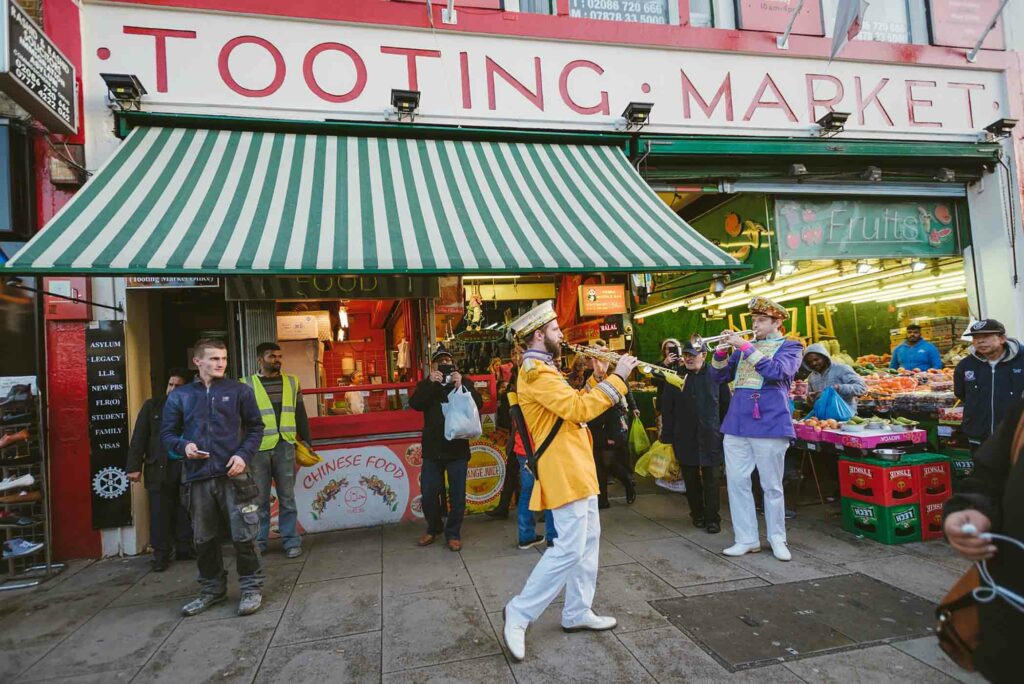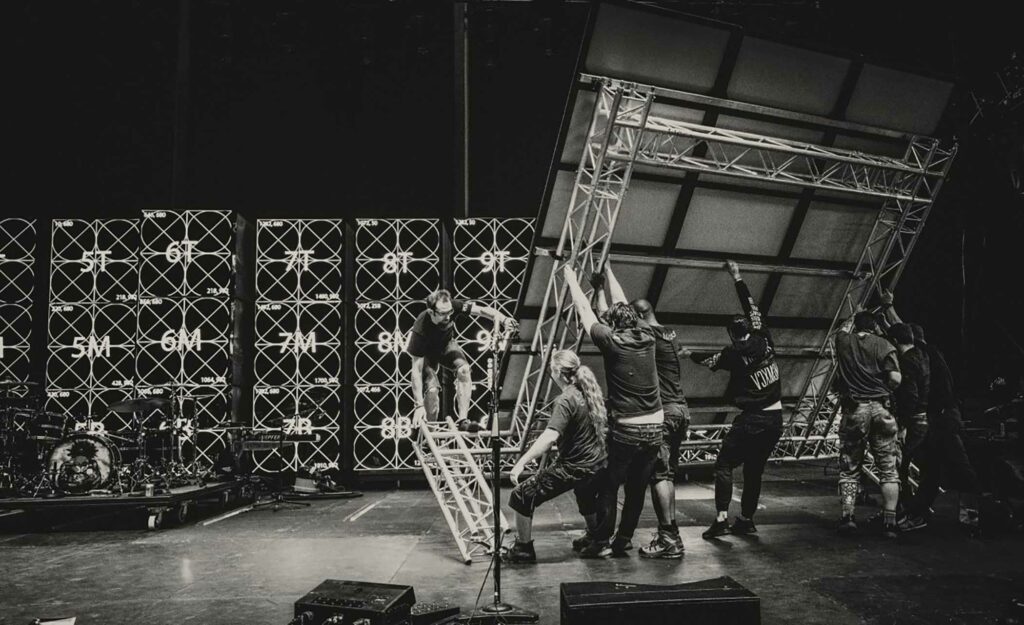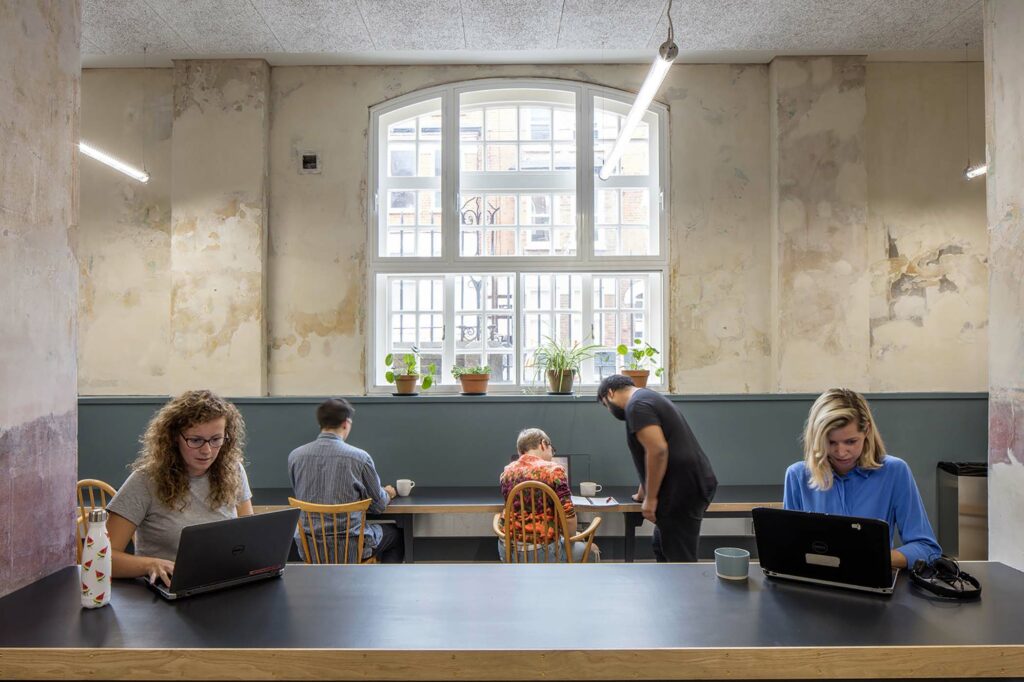Economic Growth

Case study: Tooting High Street
Tooting High Street is one of the Borough’s most culturally vibrant Town Centres, although unlike some of the others it does not have any cultural venues on the high street. What Tooting does have are two indoor markets (Tooting Market and Broadway Market) and an array of pubs that act as a focus for culture and creativity in the area, provide an array of food stalls and independent shops and form a popular draw for visitors. Tooting has become famous for its vibrant food scene, which includes a selection of culinary festivals such as Tootopia Festival and Tooting Foodival.
Over the years, Tooting has also developed a strong reputation for its music offer, from Tooting Folk and Blues Festival to live music in a range of pubs. Over two years, 2015–2017, the Council worked with Serious (one of the UK’s leading producers of live music) and six other local authorities to develop a dynamic music and performance project serving as a catalyst for urban regeneration through creative cultural events. The project brought high-quality music and performance to Tooting High Streets and encouraged the community to rediscover and reclaim their public space. A series of live music events and window displays along the High Street, gave impetus to the hyper-local creative community to get involved with this project, allowing us to build a wide range of local contacts that are now part of Wandsworth Arts Fringe. The legacy of the project has been the range of small businesses that engage with us each spring to host performances, such as poets in local barbers and hairdressers, exhibitions in the market, and plays in charity shops and pubs.
Case study: Battersea Design & Technology Quarter
In 2019 work started on developing a new Battersea Design and Technology Quarter at the western end of the Nine Elms opportunity area, which will build on a strong existing creative economy and is expected to develop further with the arrival of the London headquarters of Apple and Penguin Random House.
The opening of the Northern Line extension, expansion of the Royal College of Art’s Battersea campus and the ‘Apple effect’ are already generating investor interest in the area. The plans being developed for the Battersea Design and Technology Quarter are designed to ensure that the Council maximises the opportunity to deliver a high-performing economic and creative cluster that supports the Council’s vision for the area and the Borough as a whole. It aims to draws on the strong existing design community in this part of Battersea, with creative enterprises already accounting for around 10% of all jobs in the wider Vauxhall Nine Elms Battersea Opportunity Area, such as Philip Treacy, Vivienne Westwood, and Foster and Partners, as well as the expanding Battersea Campus of the Royal College of Art, including InnovationRCA, its incubator programme for design and tech start-ups.
The existing concentration of creative employment and business is higher than that found across London, although the growth rate has been slightly lower than the city as a whole over the last five years.
The Design Sector has a much tighter and specific definition than creative industries; as such, it only accounts for around 250 jobs and 30 businesses in the Opportunity Area. The concentration of business is 50% higher than London as a whole, and while employment in the sector has grown by 42% over the last five years within Wandsworth it has only increased by 9%. There are also almost 1,300 jobs in the Tech sector in the VNEB Opportunity Area. The quarter will therefore meet the expanding demand for space and support the Borough’s existing creative cluster.
Case study: Maintaining Artists’ Studios
The last decade has seen a significant lose of artists studios across London. In 2009 a group of young artists decided to try and do something about this loss of space and set up their own space. It was originally a joint venture developed by the National Federation of Artist Studio Providers (NFASP), ACAVA, Workspace and a group of Central St Martins graduates.
In 2010 Collective Studios through ACAVA moved into 7–9 Church Row, a previously empty listed Georgian building in Wandsworth Town, which the artists have completely transformed. The space is a temporary meanwhile occupancy while development takes place on the adjoining land as part of the Ram Quarter. Twelve artists currently work in the studios, practising disciplines ranging from painting to film to kinetic sculpture.
Over the years the artists at Collective Studios have formed many local links, working in partnership with other local organisations and other local artists.
Activities have included:
- Hosted over 60 solo and group shows
- Ran annual Big Draw events for local children
- Worked in partnership with Southside Centre in providing over 3 years of Christmas Card making workshops
- Participating in both Wandsworth Arts Fringe and Wandsworth Artists’ Open House
- Worked in partnership with Cato Trust (now Neko Trust) in setting up an additional gallery space in their site where they could host larger shows with regular opening receptions that drew in a large audience from all over London, such as can be seen below.
With all the support, knowledge and skills gained over the years, 2021 will see Collective Studios transform into WIP Space. WIP Space will be focused on finding its own space to continue to support creative SMEs through a mixed-use site that can house studios, gallery, community and project spaces but also include subsidised work/live units. Supporting artists who value collaboration and cross pollination, especially important in a post pandemic world.

Case study: Supporting The Next Generation in The Music Industry
Neko Trust is a music industry charity that supports the next generation of talent to reach their potential, both on and off stage. Established in 2005, NEKO runs an historic, creative site in Wandsworth where a community of 50 artists work out of subsidised studios, writing rooms and production suites. The charity focuses on those who are early career but it is also home to established and high profile artists who utilise its spaces for rehearsal.
Recognising that the COVID-19 pandemic represents the biggest threat to the UK’s cultural infrastructure, institutions, and workforce in a generation, the charity wants to ensure the live events industry emerges better and more resilient than ever before. For NEKO this means improving diversity and inclusion across the industry.
In 2021, NEKO is set to launch a new pilot which looks to accelerate the employment opportunities of a diverse group of emerging onstage and offstage talent. It also wants to empower young creatives to progress their own ideas, including the development of digital initiatives for online audiences.
NEKO has a track record of running educational courses in touring production aimed at providing young people with the skills needed to have a successful career in the industry, while also providing access to the spaces they need for on the job training, rehearsals, and performances.
Case study: At The Forefront of Innovation
InnovationRCA is the Royal College of Art’s centre for enterprise and entrepreneurship, helping students and graduates transform compelling ideas into successful businesses.
InnovationRCA, based in Battersea, is set up to:
- Provide start-up incubation services, including pre-seed funds of up to £100,000, to help exceptional graduate start-ups with compelling ideas rapidly generate technological, market or commercial proof of concept and transform them into profitable and investable businesses.
- Accelerate the growth of creative brand businesses founded by graduates of the RCA
- Protect and manage the commercialisation of intellectual property created by students, graduates and staff helping them bring their innovations to market. A wealth of amazing products have already been developed through the InnovationRCA start-up incubation programme, with highlights including:
- The Moment by Lucy Soo Min Jung, MA / MSc Innovation Design Engineering, 2019. The Moment is developing a wearable device that emits a low voltage impulse on-demand, in order to relieve the symptoms of Parkinson’s and other neural transmission disorders. The vibrotactile stimulation device sits on a user’s sternum and helps decrease stiffness, slowness and improve the fluidity of their movements. Pilot testing has showed 100% of the users showed increased speed in their movements and has been shown to overcome hesitancy and immobilisation in Parkinson’s sufferers – enabling them to live richer lives. Trials are showing that The Moment’s technology might have similar benefits to sufferers of other neural transmission disorders.
- FreshTag by Rui Xu, MA Textiles, 2019. FreshTag is developing sustainable food packaging that is biofilm-based and pH-sensitive. FreshTag’s packaging technology dynamically changes colour as food freshness decreases – signposting when the packaged food is safe and unsafe to eat, thus eliminating food waste and reducing consumer dependence on plastic-based packaging and unreliable “Use-by” dates.
The Higher Education Funding Council for England’s 2015 report Research to Assess the Nature and Annual Value of Student Start-ups, ranked the RCA as having ‘the highest number of student spin-outs with university ownership in recent years in the UK’. Wandsworth Council is working with the RCA in exploring how we can support these new creative businesses with staying and growing within the Borough.
Case study: Supporting New Writers
Theatre503 is the home of new writers and a launchpad for the artists who bring their words to life. They focus on finding exceptional, diverse new playwrights who will define the canon for the next generation, as well as supporting learning and career development at the core of their work. The key to Theatre503’s success is how they bridge their work identifying, nurturing and supporting playwights by doing everything they can to get their work on stage performed in front of a public audience. With two Olivier Awards, countless playwrighting awards and nominations Theatre503 has become the most significant venue for first time writers in the English speaking world. “Doctor Who”, “The Crown”, “Normal People”, “Succession” and “Killing Eve”, are just a few of the programmes writers who made their debut at the venue are now writing for, as well as for theatres across the country.
In 2020 they launched The 503Studio , the culmination of a four-year dream to bring together all the existing strands of their work developing early career playwrights to get from script to stage.
While the Studio was always a long-held ambition, the Covid-19 crisis gave them the moment to reflect on who they are and what they could do to keep supporting Wandsworth, London and the UK’s incredible freelance community. The Studio was launched with a paid for Writers Programme, with both the Autumn and Spring iterations selling out in a matter of days. At least 25% of all places in this and future programmes are offered for free via their Share the Drama scheme, with a priority given to Wandsworth residents who would otherwise be unable to afford places. The year round programme of the 503Studio will feed directly into productions at their Latchmere space.

Case study: Incubating New Businesses
The Scratch Hub is a co-working space situated in the heart of Battersea Arts Centre. It opened in 2018 in the area of the building known as the Lower Hall. The Scratch Hub offers different types of work and desk spaces, meeting and events rooms, capacity building and professional development opportunities.
It is a thriving community, with the membership curated to ensure there’s a dynamic buzz of people from different backgrounds and sectors with a range of experiences: local entrepreneurs, grassroots voluntary organisations, artists, makers and young people testing new ideas. The community includes the Springboarders, who receive free membership to build their ideas and networks. These members are selected for their brilliant achievements, their great potential and the significant social impact they are making rather than on the basis of their field of expertise. Members share skills through a time-banking system, sparking new collaborations and supporting one another.
The Scratch Hub is strengthening Battersea Arts Centre’s networks locally with those who have similar socially-minded goals, most significantly in new areas outside of the arts and cultural sector: with local business, charities, social sector and start-ups.
These new partnerships make the organisation stronger in achieving the broader, civic-minded purpose, which is about supporting creativity and creative environments that enable all types of people and businesses to flourish, “to inspire people, to take creative risks, to shape the future.”

